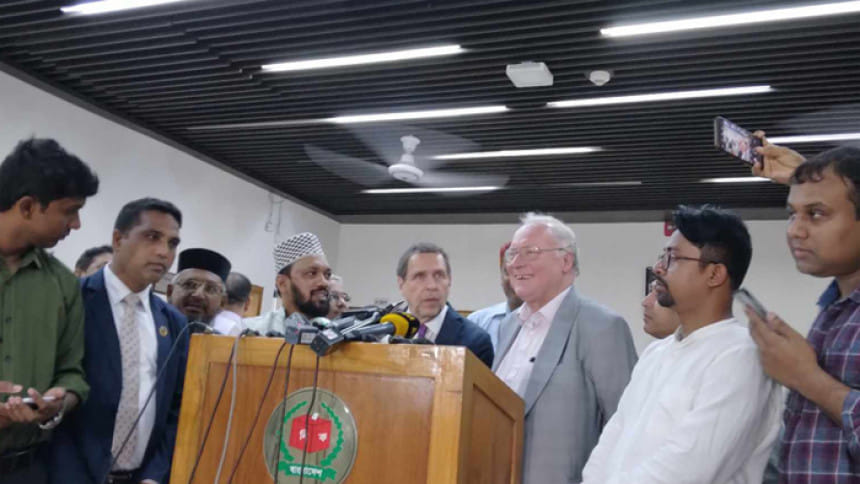Caretaker govt ‘unconstitutional’, UN intervention in polls ‘not feasible’

Terry L Easley, who was part of a delegation of international "election observers" that visited Bangladesh last month, has found the demand for restoration of the caretaker government system to be "illegal and unconstitutional".
The US national also expressed that calls by some for a UN intervention to administer the upcoming national election is "realistically not feasible".
He reminded that "the UN rarely conducts a national election and it is highly unlikely they would do so in Bangladesh".
A press note from the "internationally certified election observer" further added that for such intervention "a Security Council or General Assembly resolution would have to be passed and time is too short to realistically accomplish this before the mandated election date."
Recently, a letter from some US congressmen sought the intervention of the UN in the administration of the upcoming national election that has drawn criticism at home and abroad.
BNP and Jamaat-e-Islami leaders remain vocal over the reinstallation of the caretaker government system, earlier ruled out by the country's apex court as it found it to be "unconstitutional."
In his observation over the caretaker government system, Easley found certain hurdles on the path to bring back the now scrapped system.
"No legal framework exists to set up, appoint or otherwise authorise a CG [caretaker government], the political will to make the changes necessary does not exist in the ruling coalition, the timetable is too short as the poll is slated just months away, and election results under a CG could be overturned," he further added.
Easley is deputy head of mission at International Election Observation Mission.
Earlier, former adviser to a caretaker government Sultana Kamal said "a caretaker government is not capable of delivering solutions to all the problems".
Sultana, who is also a renowned rights activist, rather stressed on the need for an "independent Election Commission" and political will.
According to a number of journalists, who held key newsroom positions back then, "that very tenure has been marred by mounting pressure on journalists and editors of mainstream dailies from the military-backed regime – forcing them to publish unsubstantiated stories against political leaders, including then opposition leader and Awami League chief Sheikh Hasina."
Moreover, on the assessment of the functions of the Election Commission, Easley said, "EC is highly centralised or otherwise mandated as the federal body in the constitution to oversee the entire electoral process."
"Established as 'independent', the EC has the ability to suspend elections it deems fraudulent and has done so in the past even over the objections of the government and the ruling party," he noted.
"Notwithstanding the claims of past irregularities, the commission has the legal standing and framework to administer free and fair elections while the commission has warranted to this mission its independence and commitment to free fair and safe elections," he added.
In concluding remarks, Easley hoped that "Bangladesh's next national election be widely accepted as legitimate by all sides."

 For all latest news, follow The Daily Star's Google News channel.
For all latest news, follow The Daily Star's Google News channel. 



Comments